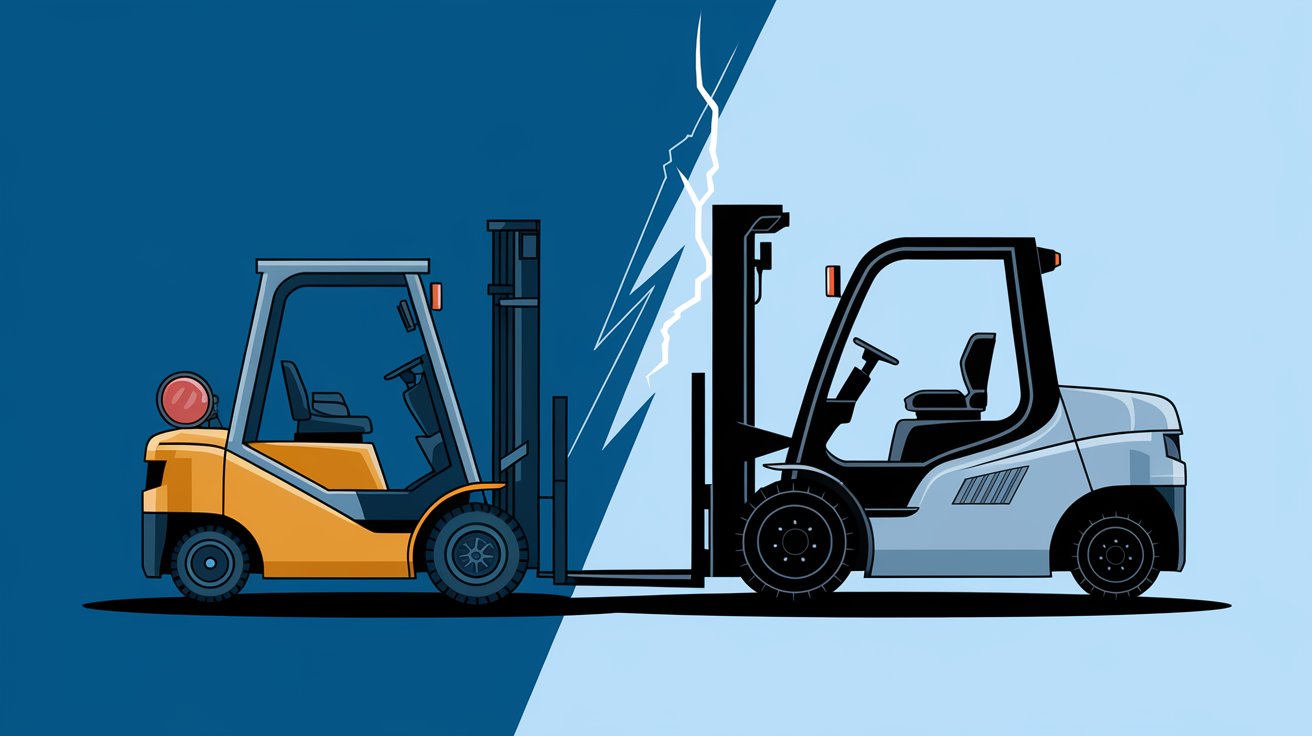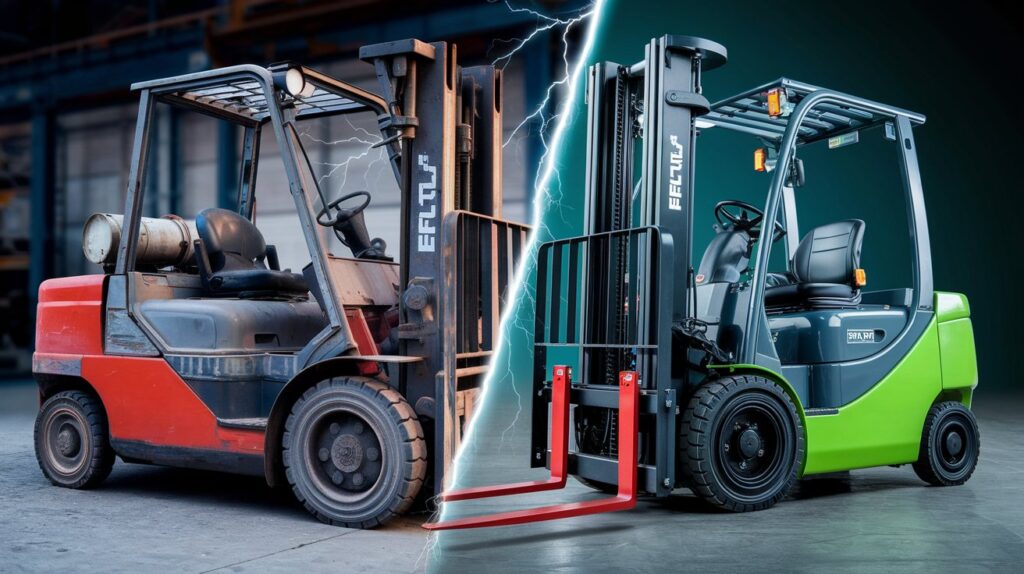
Choosing between diesel and electric forklifts can significantly impact a business's operational efficiency and long-term costs. From initial investment to maintenance, fuel consumption, and environmental considerations, each type has its distinct advantages and disadvantages. With advancements in battery technology, such as SPIDERWAY LFP forklift batteries, electric forklifts are becoming a more attractive option for businesses aiming to balance cost-effectiveness with sustainability.

1. Diesel Forklifts: Costs, Advantages, and Disadvantages
Costs
- Initial Investment: Diesel forklifts are generally less expensive upfront compared to electric models.
- Fuel Expenses: Diesel fuel costs can fluctuate significantly, impacting operating budgets over time.
- Maintenance Costs: Regular engine servicing, oil changes, and filter replacements contribute to higher long-term maintenance expenses.
Advantages
- Powerful Performance: Diesel forklifts are well-suited for heavy lifting and outdoor operations, especially in uneven terrains.
- Refueling Speed: Diesel forklifts can be refueled quickly, minimizing downtime during operations.
- Durability: Diesel engines are robust and capable of operating in harsh conditions.
Disadvantages
- High Emissions: Diesel forklifts emit pollutants, making them less environmentally friendly and subject to stringent regulations.
- Noise Levels: Diesel engines are louder, potentially affecting worker comfort and communication in confined spaces.
- Maintenance Requirements: The complex machinery in diesel forklifts demands frequent servicing, adding to overall costs.
2. Electric Forklifts: Costs, Advantages, and Disadvantages
Costs
- Initial Investment: Electric forklifts tend to have a higher upfront cost, particularly with premium battery systems like SPIDERWAY LFP batteries.
- Energy Costs: Electricity is more affordable than diesel fuel, and SPIDERWAY LFP batteries further optimize energy usage by offering longer cycles and higher efficiency.
- Maintenance Costs: Electric forklifts have fewer moving parts, reducing the frequency and cost of maintenance.
Advantages
- Eco-Friendly: Electric forklifts powered by SPIDERWAY LFP batteries produce zero emissions, helping businesses meet sustainability goals.
- Quiet Operation: Reduced noise levels create a more comfortable work environment.
- Lower Operating Costs: Longer-lasting batteries, such as SPIDERWAY LFP, significantly reduce energy and replacement expenses.
- Versatility: Electric forklifts are ideal for indoor use due to their clean, quiet operation and compact design.
Disadvantages
- Charging Time: While SPIDERWAY LFP batteries support rapid charging, electric forklifts still require downtime for recharging compared to the quick refueling of diesel.
- Outdoor Limitations: Electric forklifts may struggle in wet or uneven outdoor conditions unless specifically designed for such use.
- Initial Investment: The higher upfront cost can be a barrier for some businesses.
3. Why SPIDERWAY LFP Batteries Are a Game-Changer
SPIDERWAY LFP batteries address many of the challenges traditionally associated with electric forklifts. With faster charging times, enhanced durability, and exceptional energy efficiency, these batteries make electric forklifts a more practical and cost-effective solution for modern businesses. By adopting SPIDERWAY LFP batteries, companies can:
- Reduce Total Cost of Ownership (TCO) through fewer replacements and lower maintenance requirements.
- Enhance Sustainability by eliminating emissions and supporting eco-friendly initiatives.
- Maximize Productivity with long-lasting battery cycles and rapid recharge capabilities.
Conclusion When comparing diesel and electric forklifts, the choice ultimately depends on specific operational needs. Diesel forklifts excel in outdoor and heavy-duty applications, while electric forklifts, particularly those powered by SPIDERWAY LFP batteries, offer significant advantages in terms of cost savings, sustainability, and performance for indoor operations.
Embrace the future of efficient and eco-friendly forklift operations. Explore SPIDERWAY LFP forklift batteries today at Spiderway LFP Batteries.
https://www.spider-way.com/diesel-forklift-vs-electric-forklift-costs-advantages-and-disadvantages/?_unique_id=67e5498d08e6f
Comments
Post a Comment